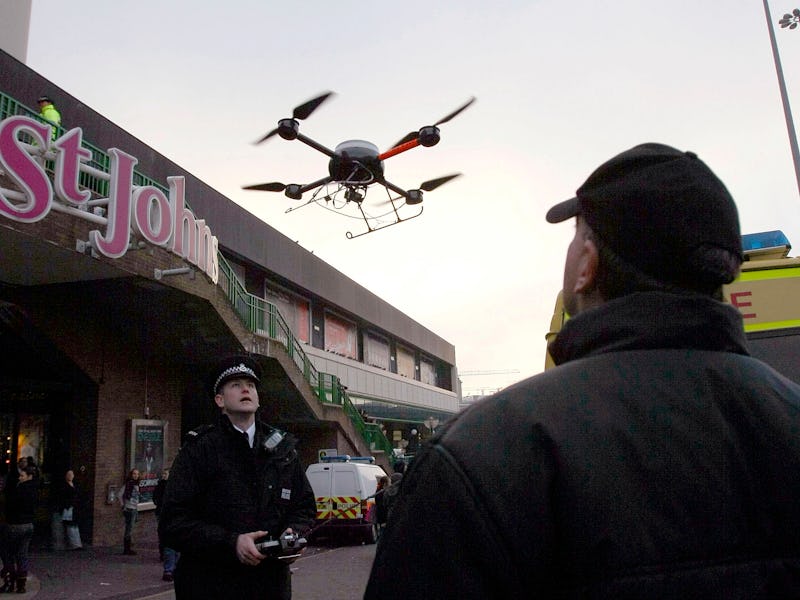A Hacker Says He Knows How to Take Over a Police Drone
For $40 and a bit of computer skill, hackers could nab a police drone.

If high-pitched whines accompany the sirens of the near future, that’s because police forces around the country — like plenty of civilians — are currently mulling shiny new drone purchases. As eyes in the sky or, perhaps, as aerial tear gas dispensers, quadcopters certainly have applications that appeal to law enforcement sensibilities. But there’s a fatal flaw in the utility of the unmanned cop chopper. For $40 of equipment and a little hacking know-how, that top-of-the-line $35,000 police drone can be yours.
Information security researcher Nils Rodday presented the vulnerability recently at the RSA conference in San Francisco. While a grad student at the University of Twente in the Netherlands, he uncovered and exploited a weakness in the radio signal pilots use to command their drone.
Essentially, he or anybody else would be able to commandeer the drone by fooling it into obeying an attacker rather than the owner. It’s not as risky as stealing a cop car, either: The attacker could theoretically be as far away from the drone as the pilot’s signal could go.
The hacker won’t say what brand of UAV he broke, but Rodday tells Wired that he’s already alerted the manufacturer. Unless it’s fixed — which could take a hardware upgrade — a malicious operator could crash the drone, switch off its cameras, or simply set it on a sticky-fingered flight path.
Exposing this vulnerability couldn’t have come sooner for police who might be lobbying for drones to add them to their toolkit — or arguing drones need stricter regulations. Connecticut lawmakers are wrestling with what to do with weaponized drones, prompted by YouTube videos of a teen who strapped a drone to a quadcopter and roasted a turkey with drone-flamethrower hybrids. One bill introduced Monday would ban weaponized drones outright, while another would arm law enforcement with drones as a countermeasure.
In the same week, two thousand miles to the west, a Utah legislator proposed a law that would allow the authorities “to force the termination of the flight of an unmanned aircraft” including, as Ars Technica notes, by damaging it.
Shooting at flying drones is a risky proposition — but if this bill passes before the UAV vulnerability is fixed, we might just witness the insane scenario of cops having to neutralize their own zombified drones.